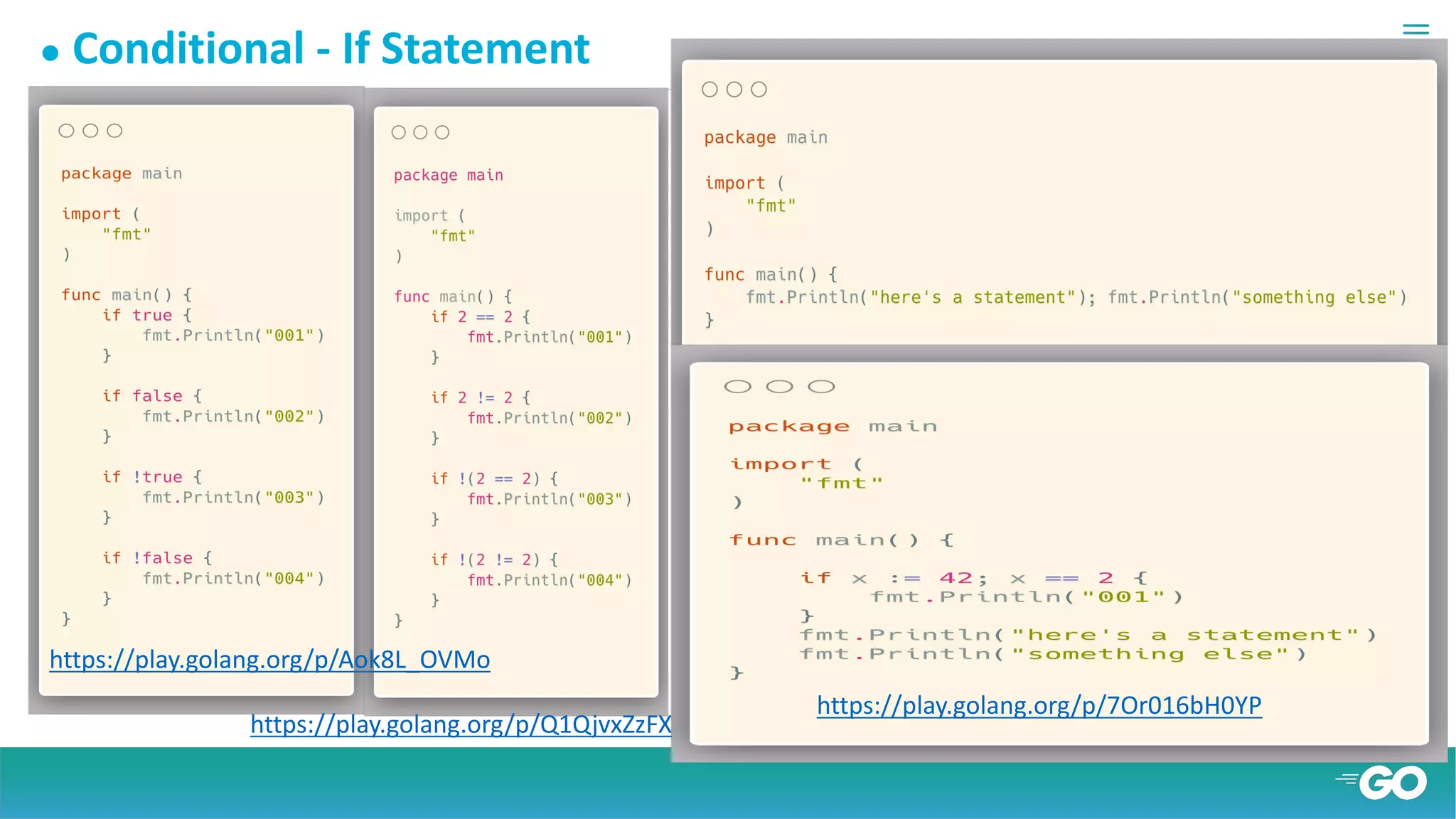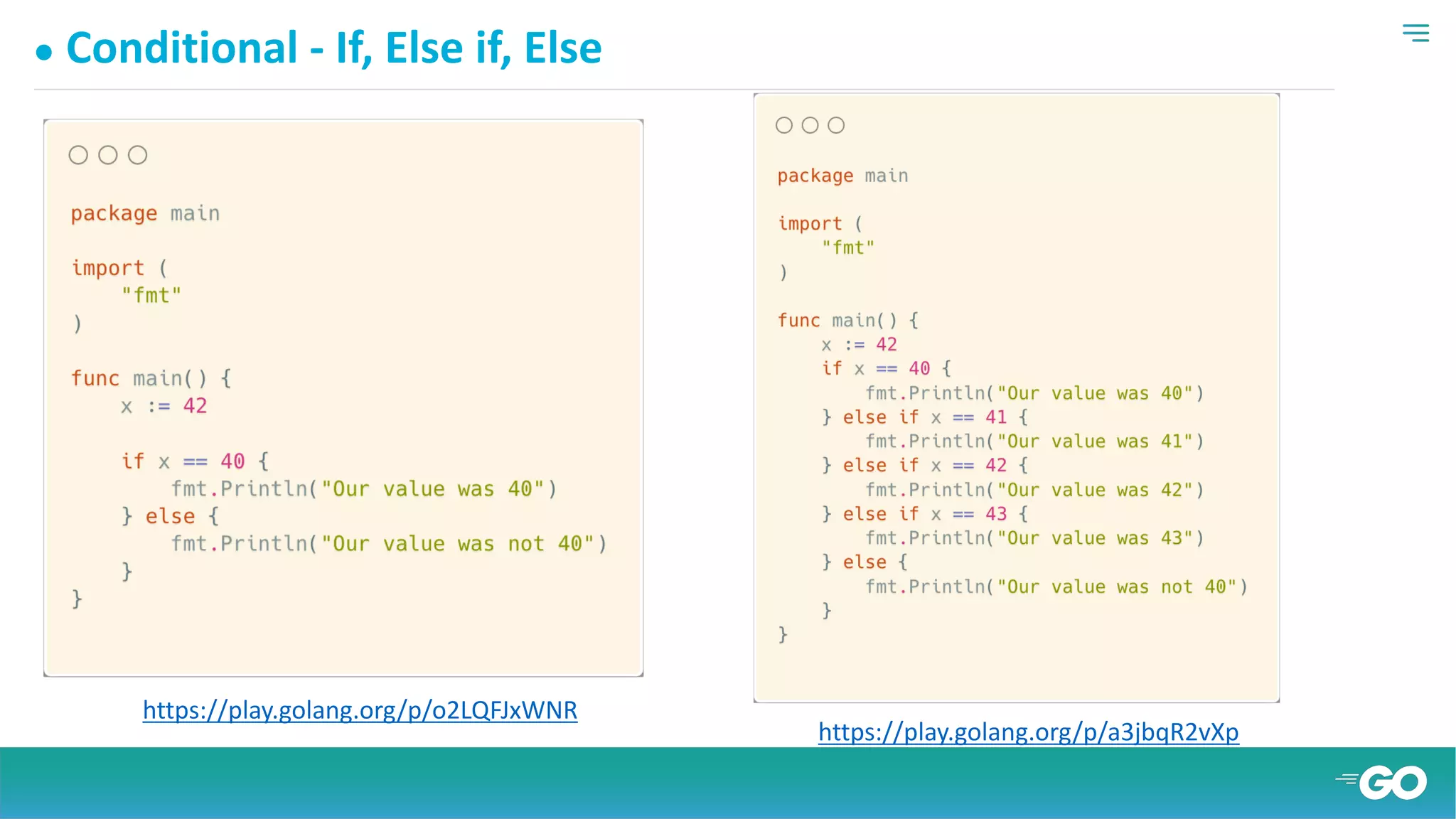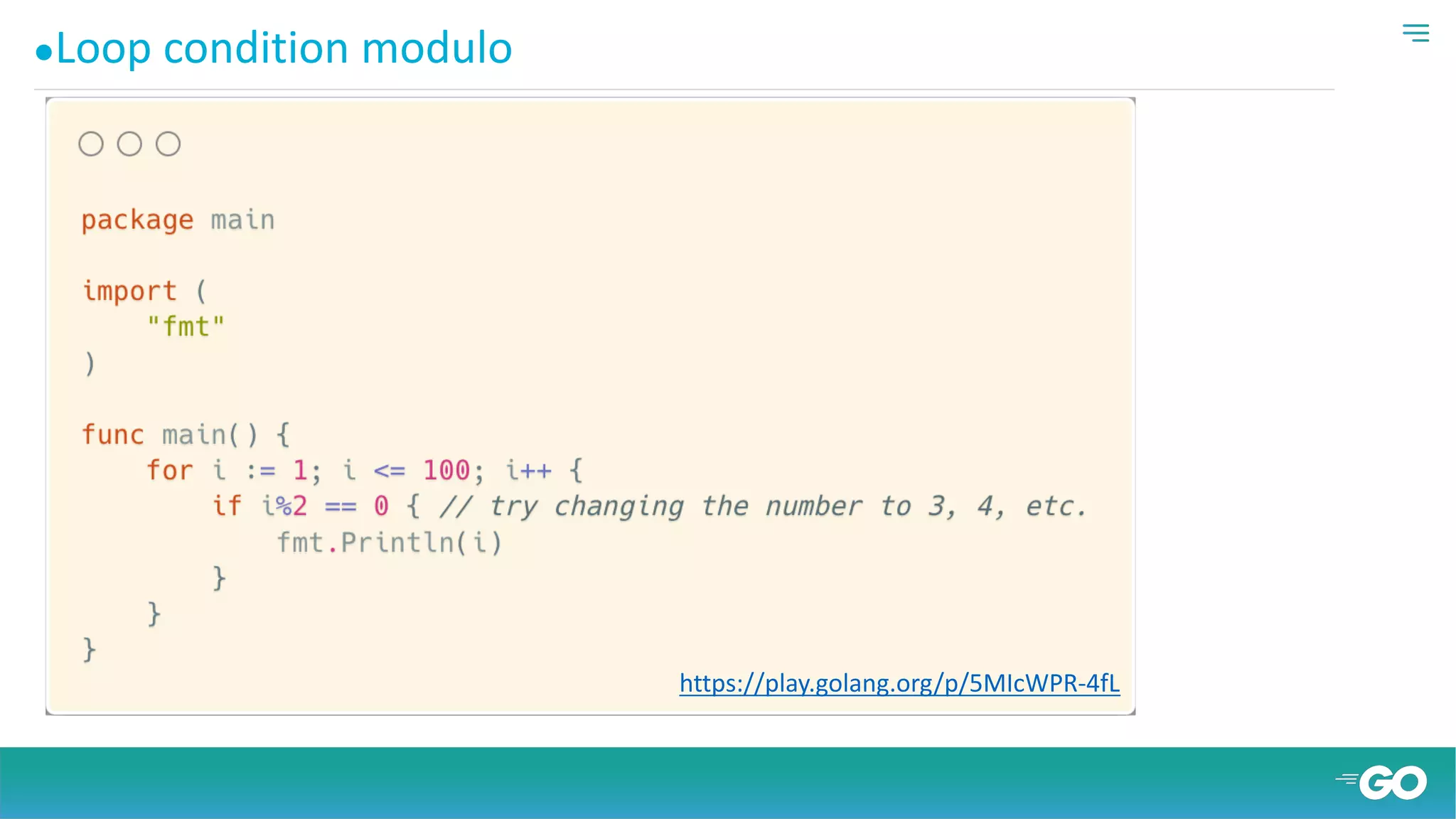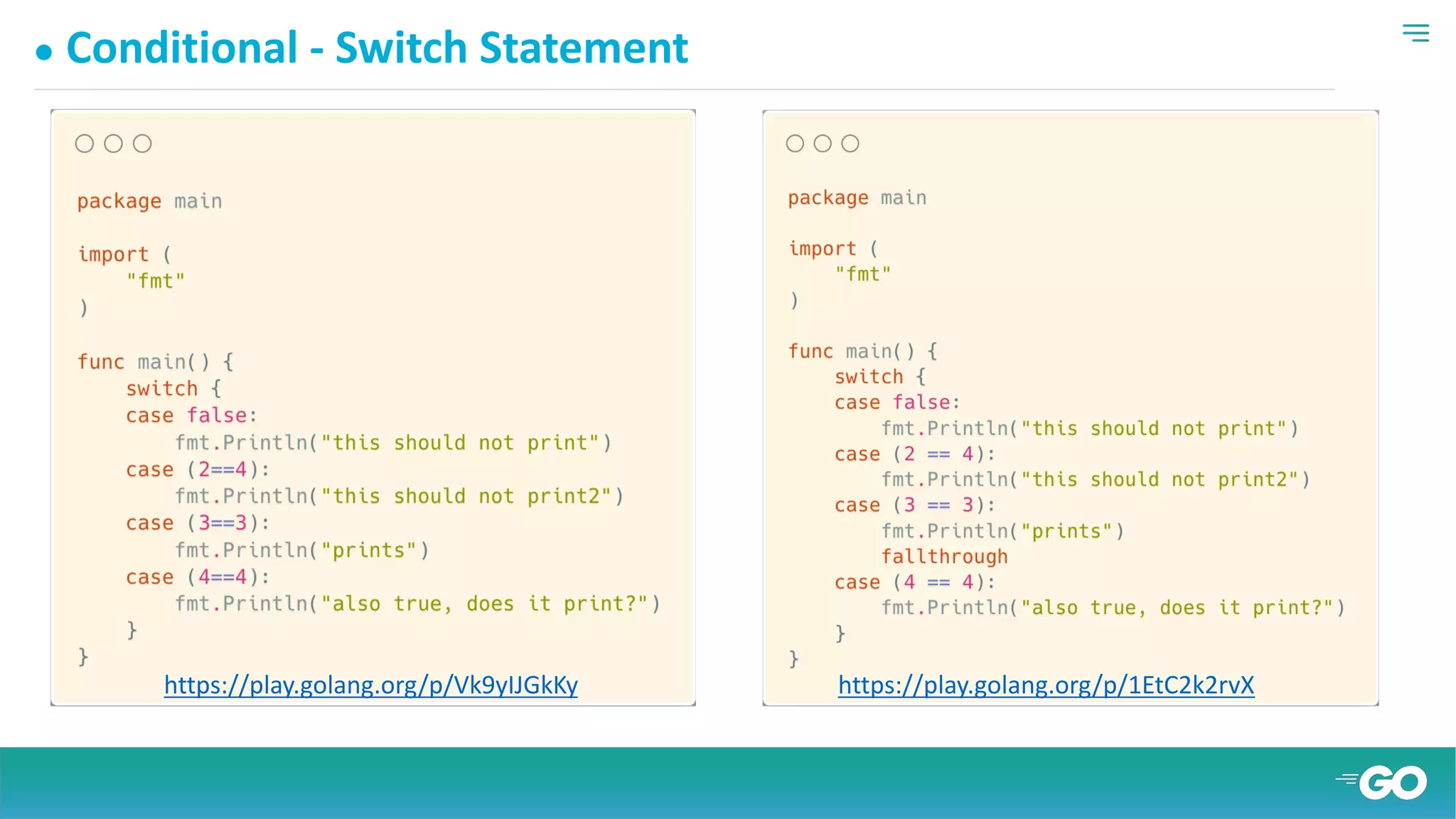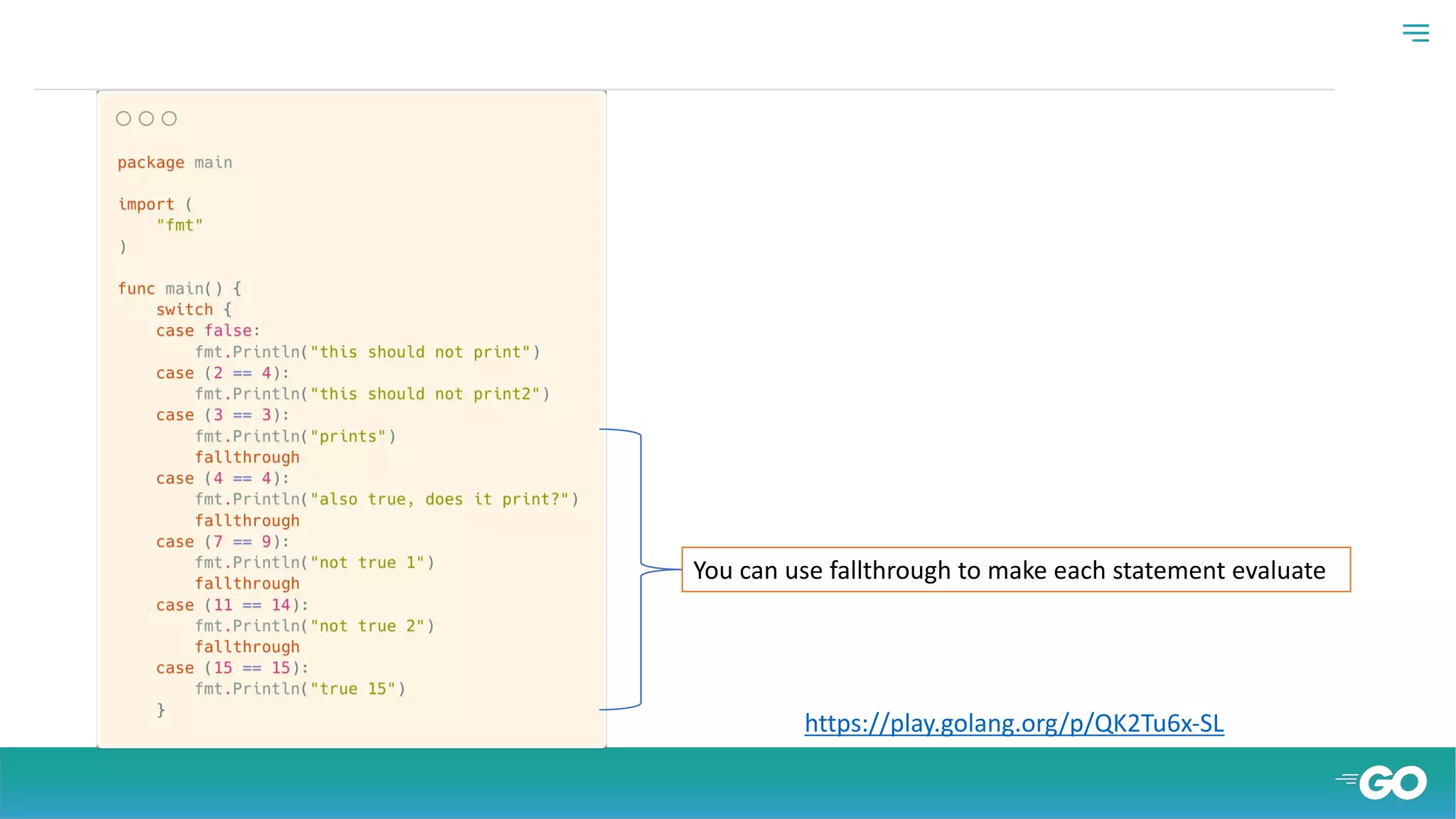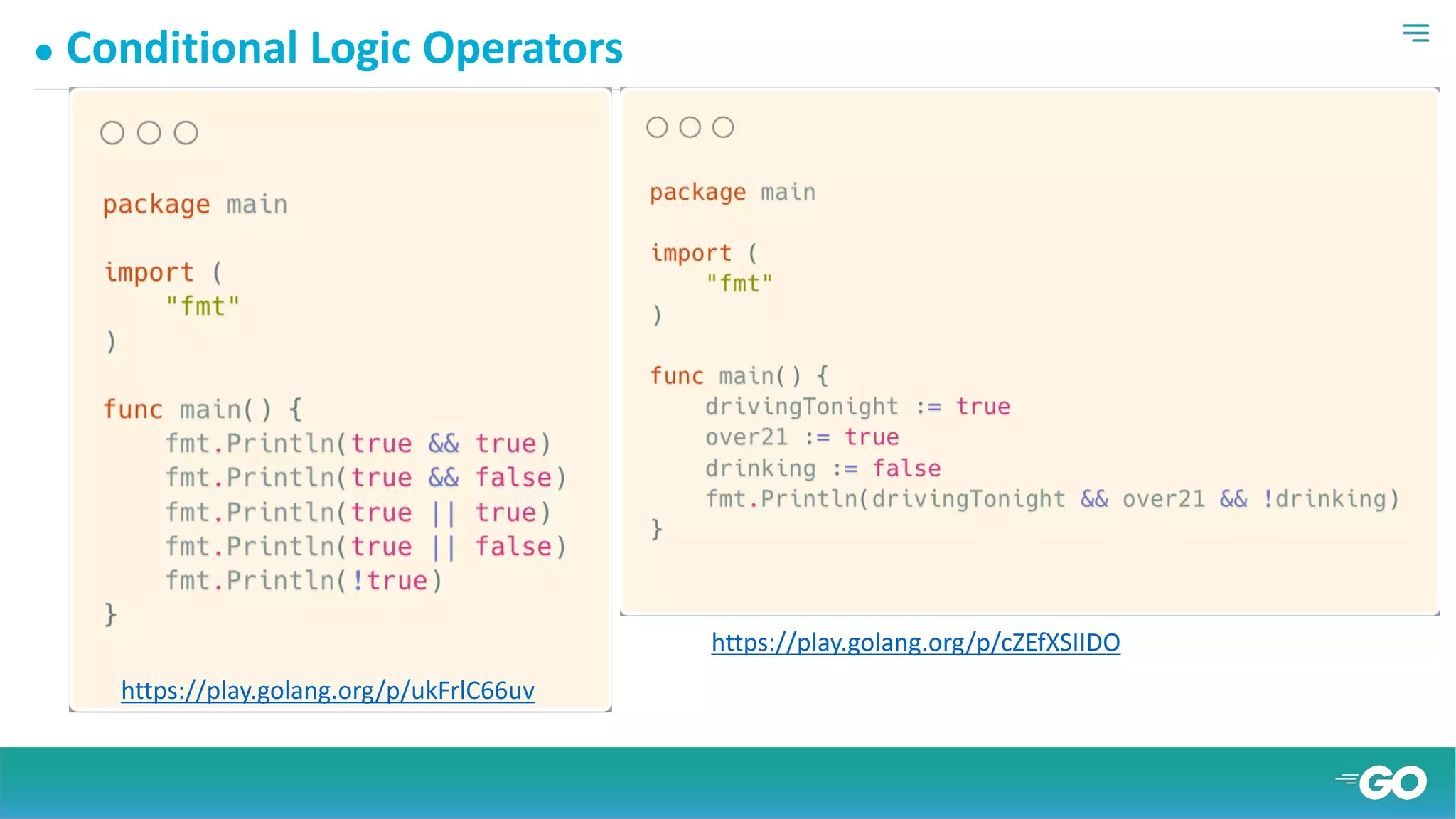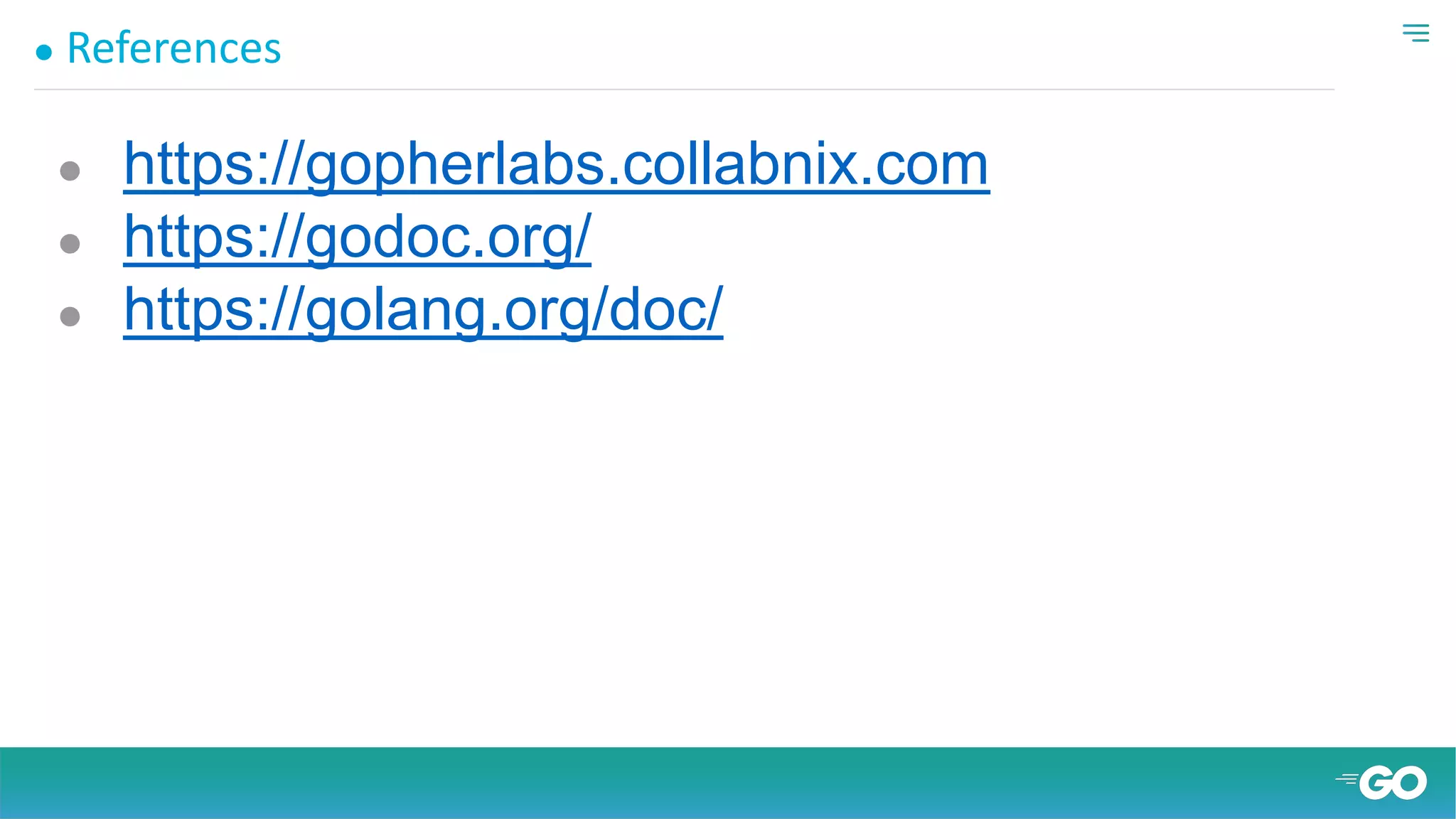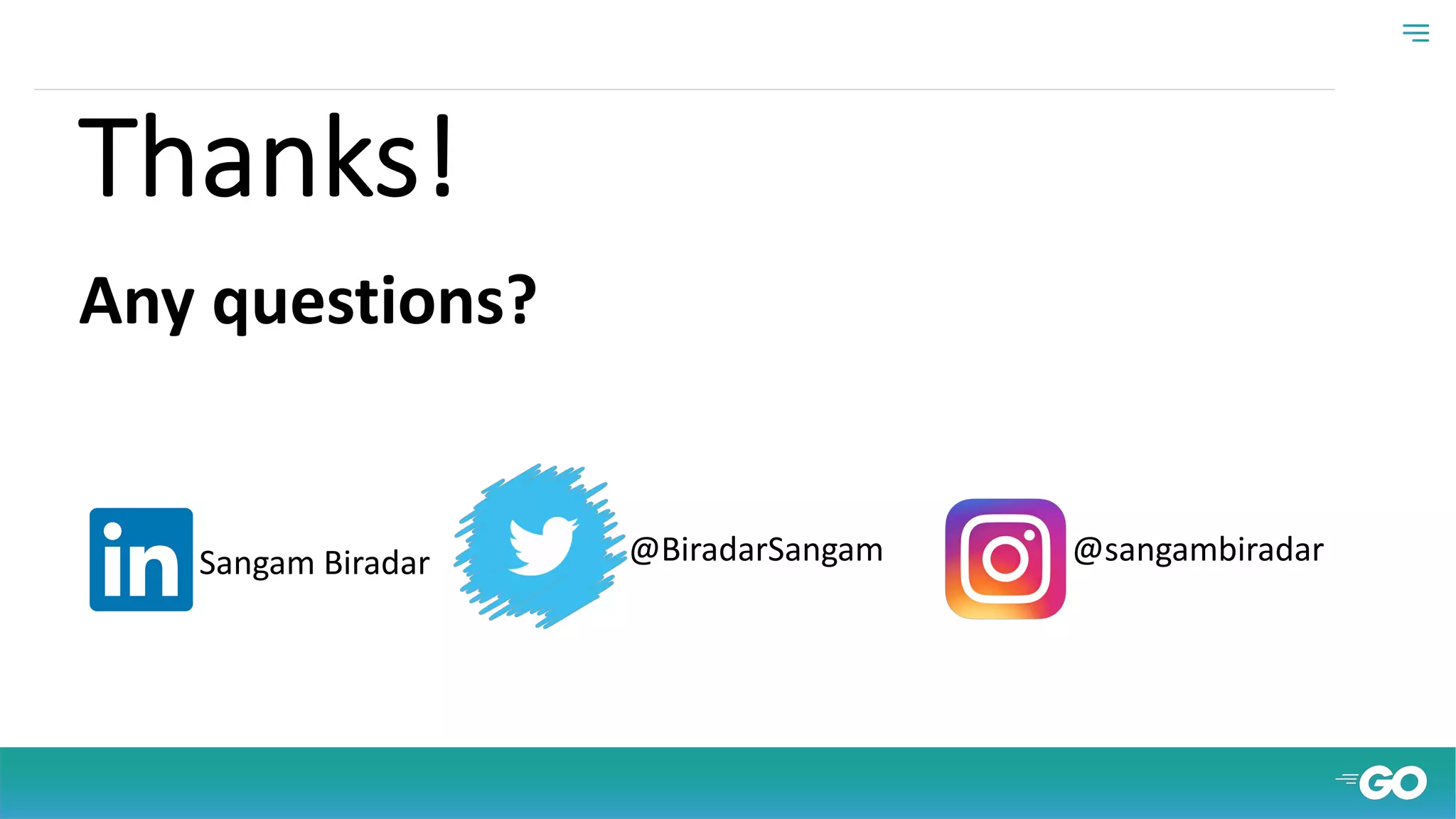This document discusses decision making in Golang. It provides an overview of loops including for, while, break, continue, and nested loops. It also covers conditionals such as if, else if, else, switch statements, and logical operators. Code examples are provided for each concept via links to an online Golang playground. The author is identified as Sangam Biradar, a Docker community leader who writes tutorials on Golang.


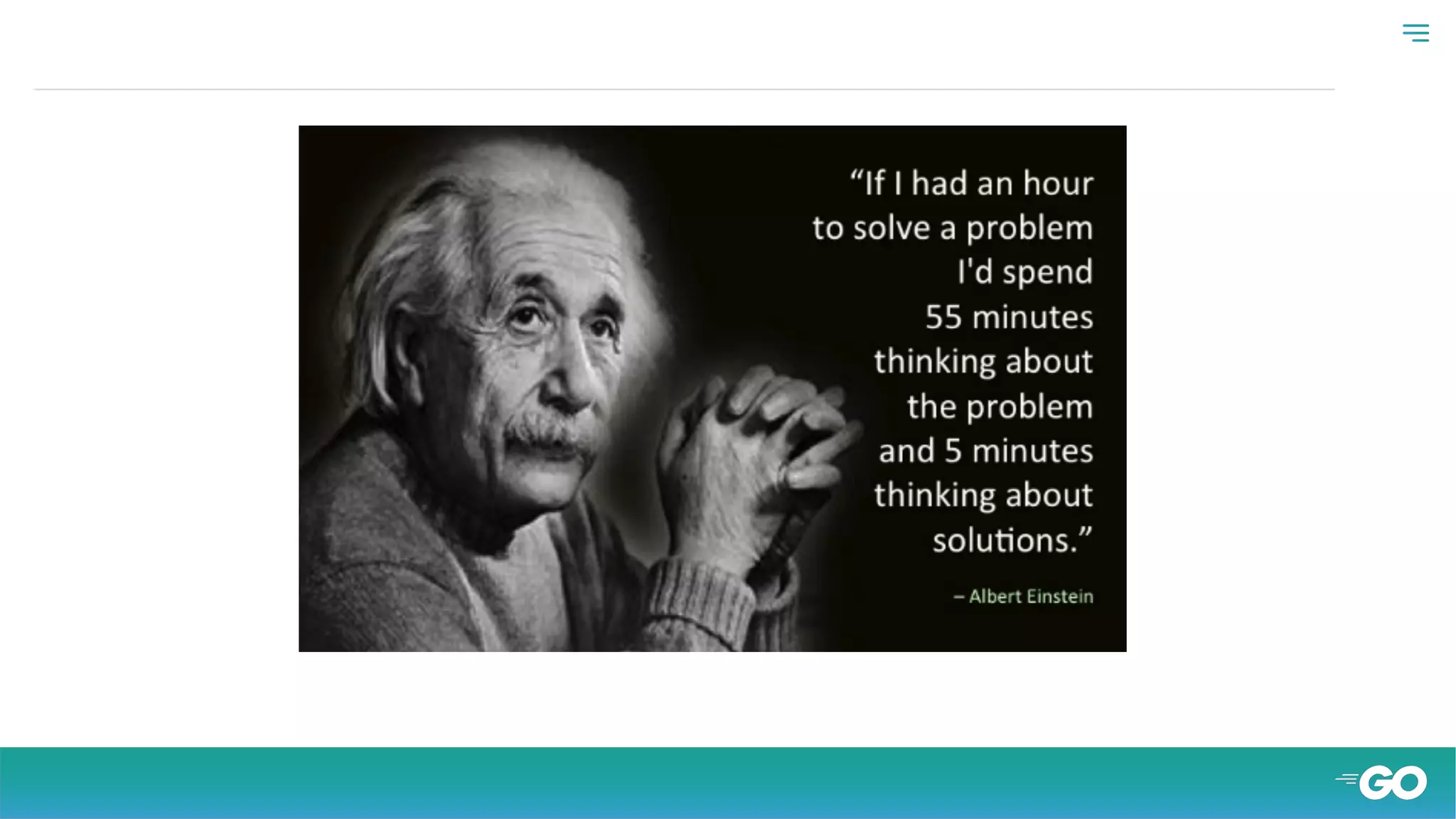
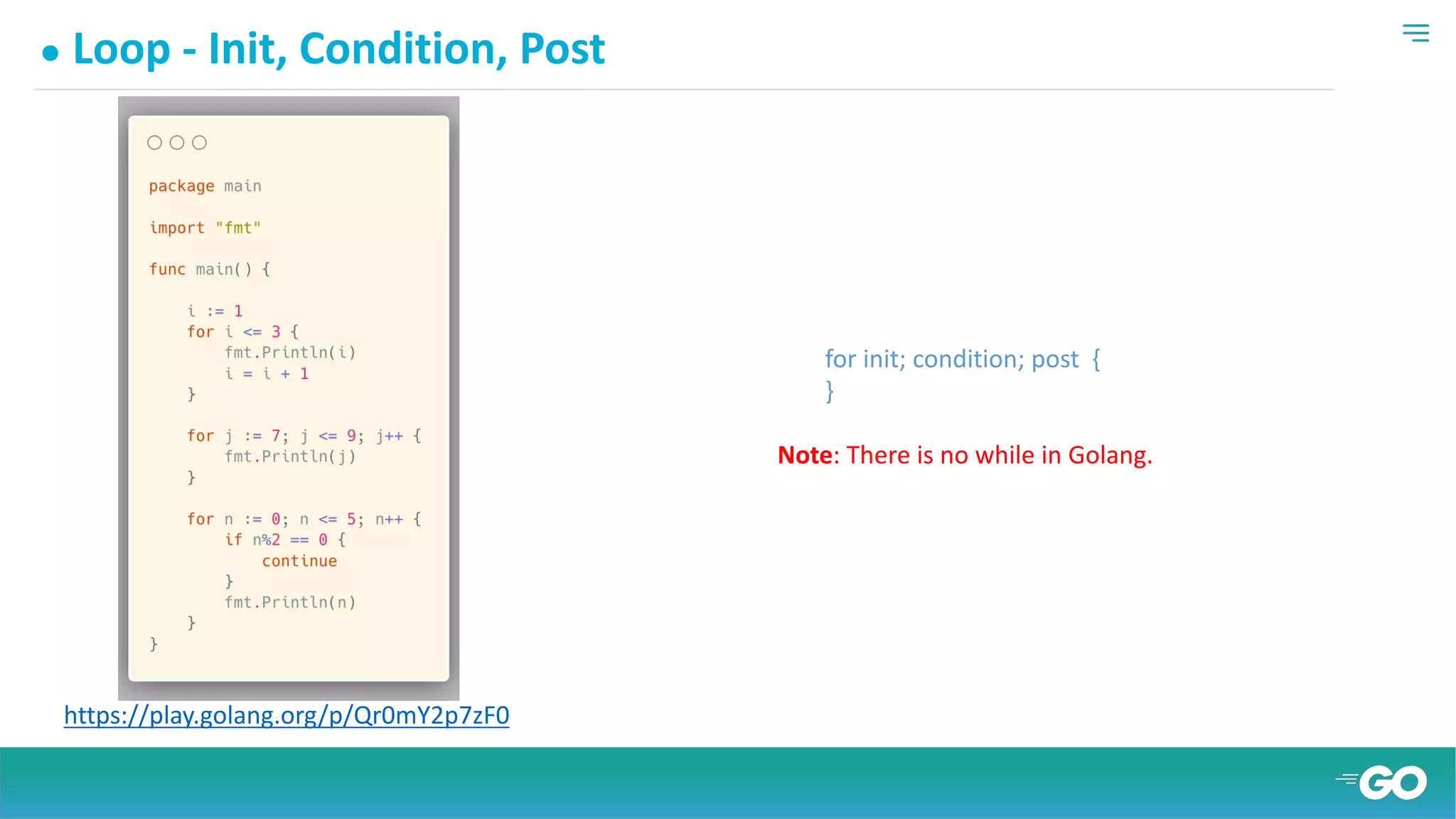
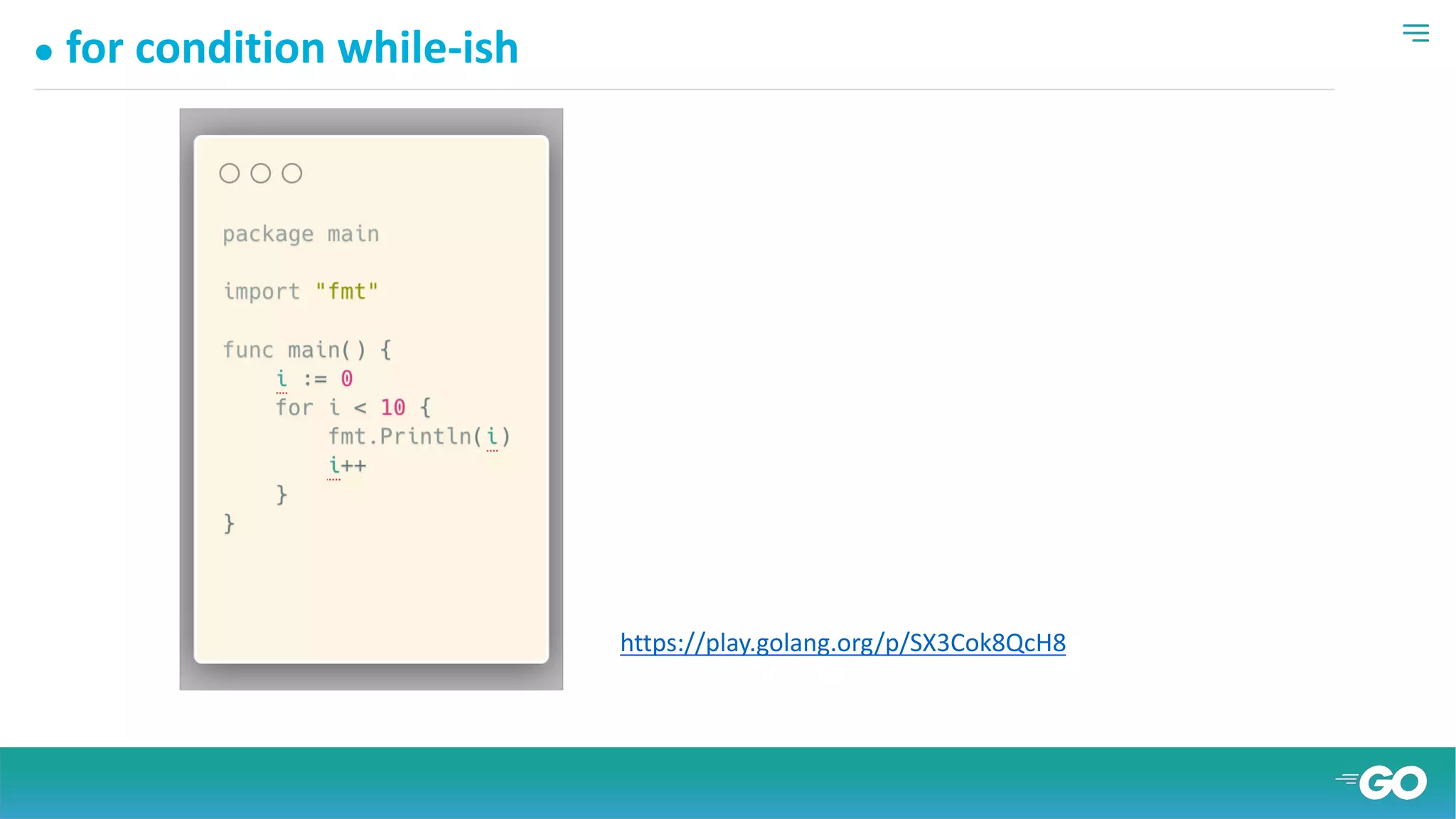
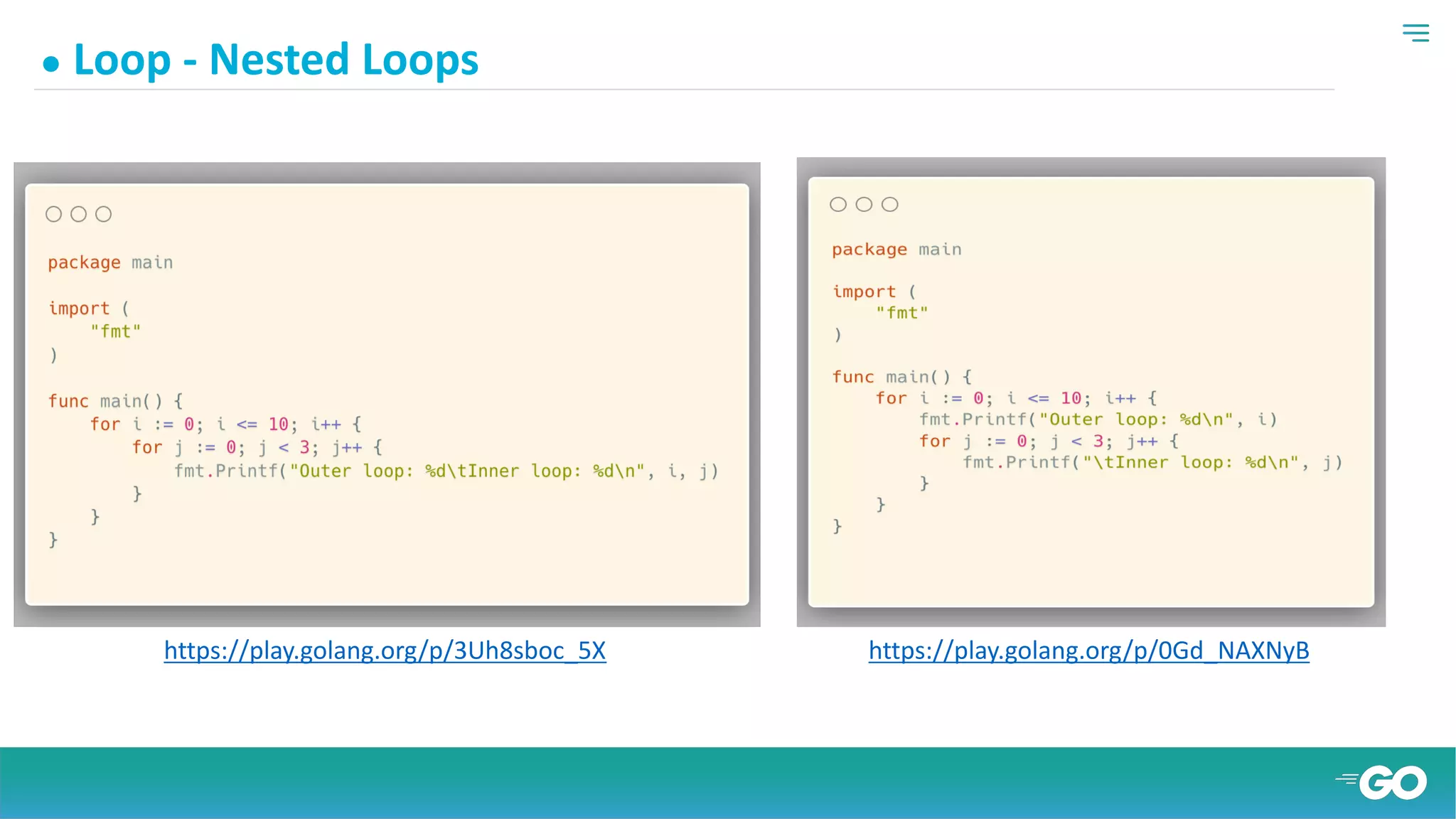
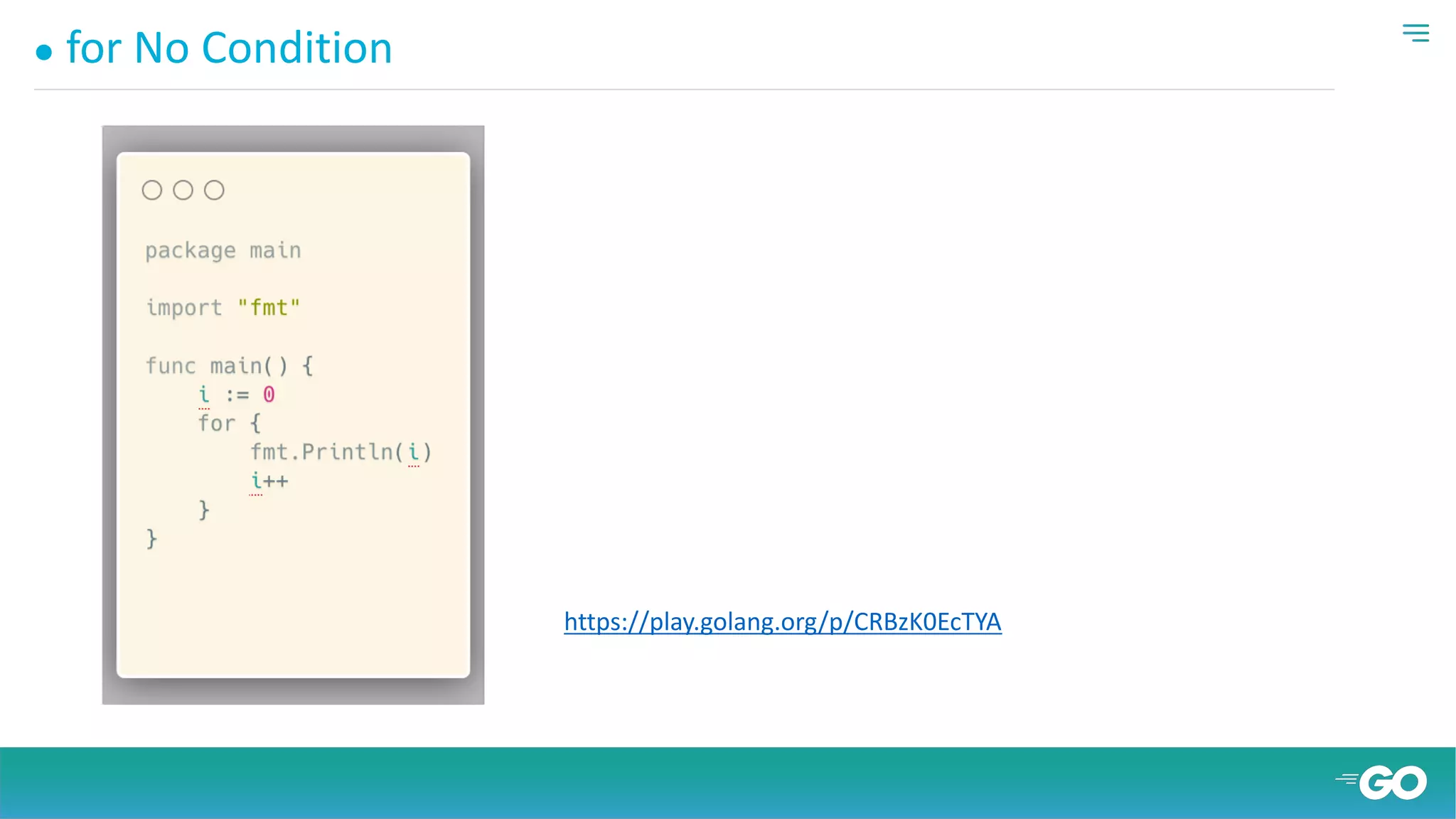
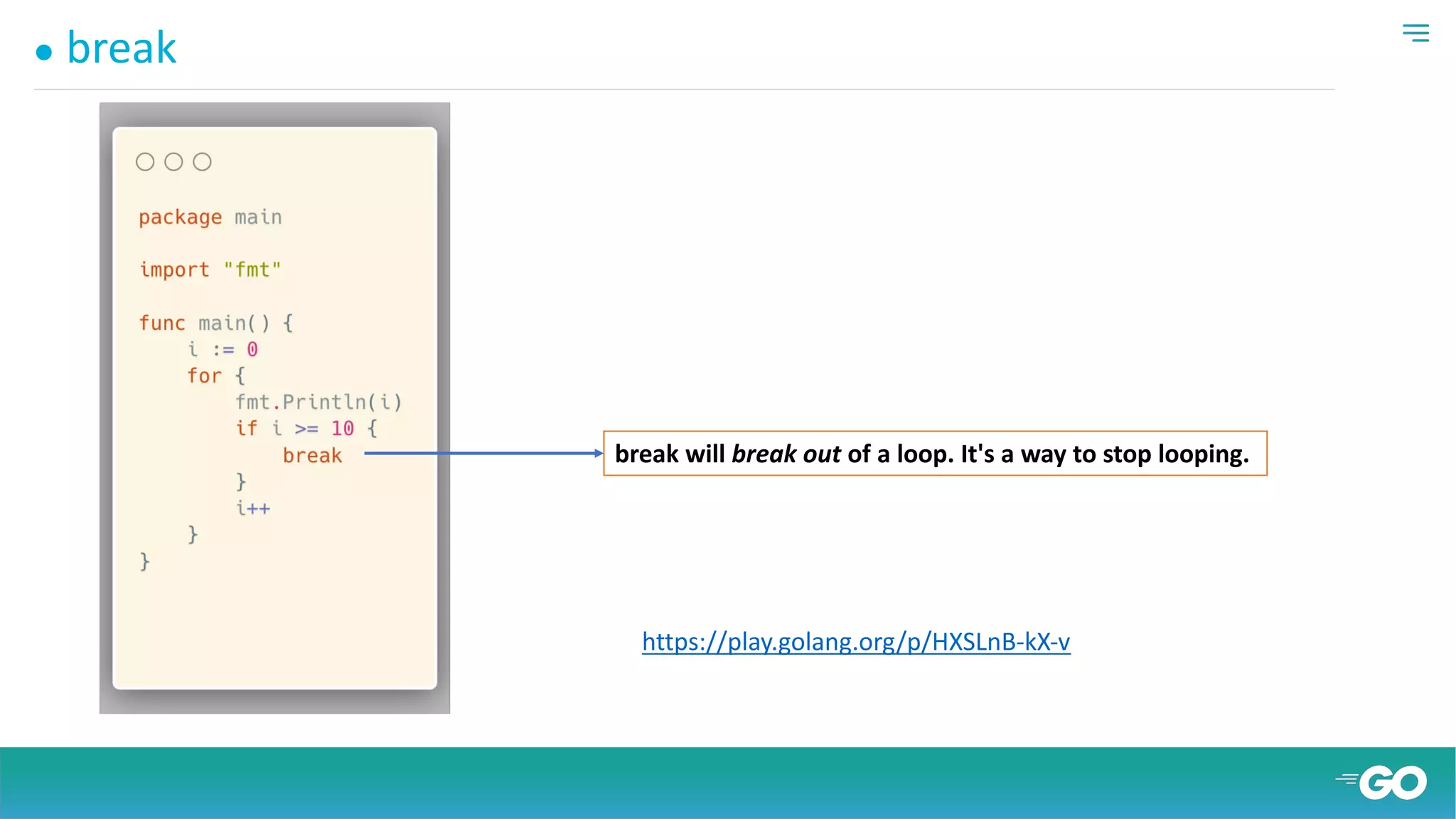
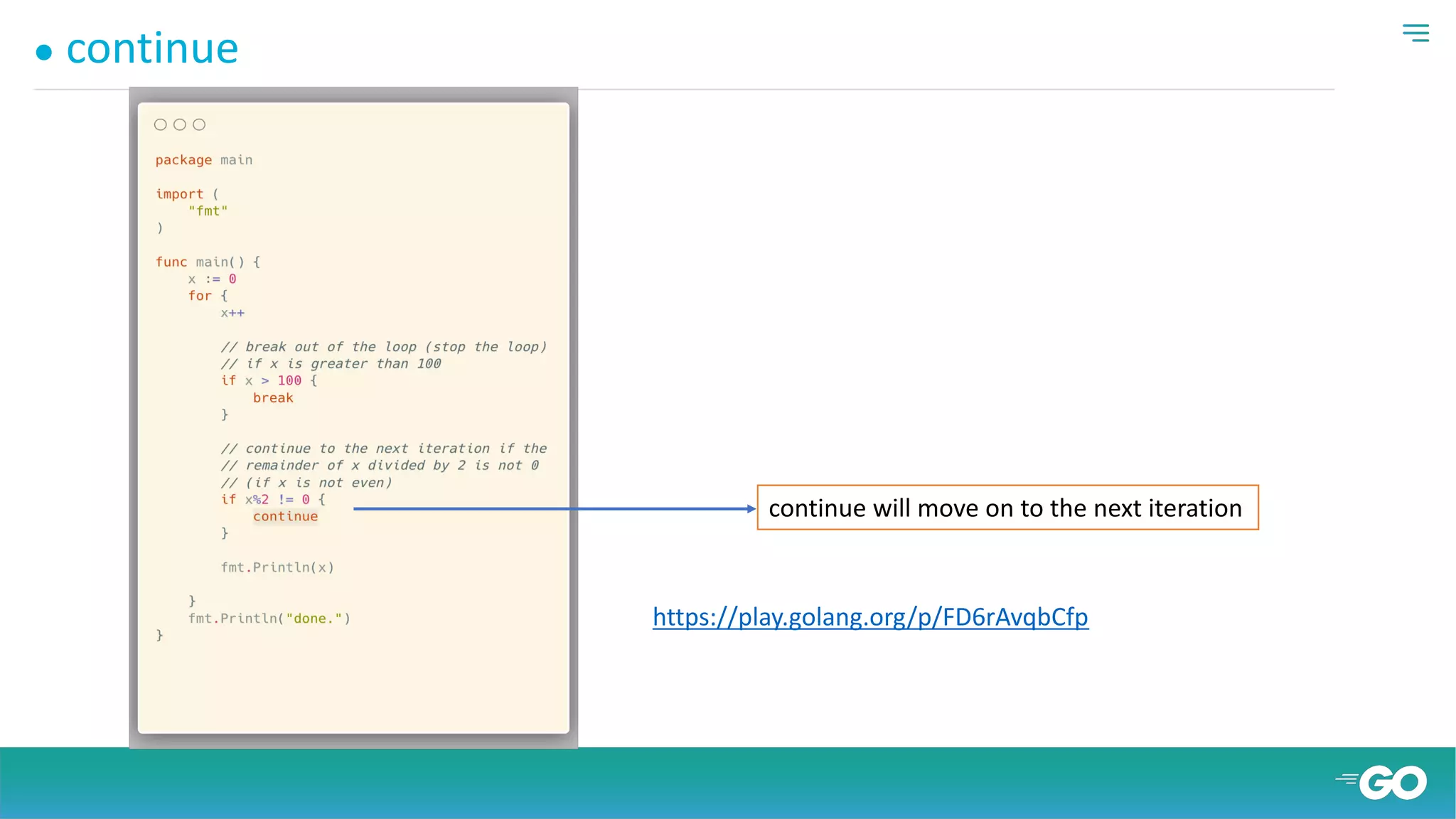
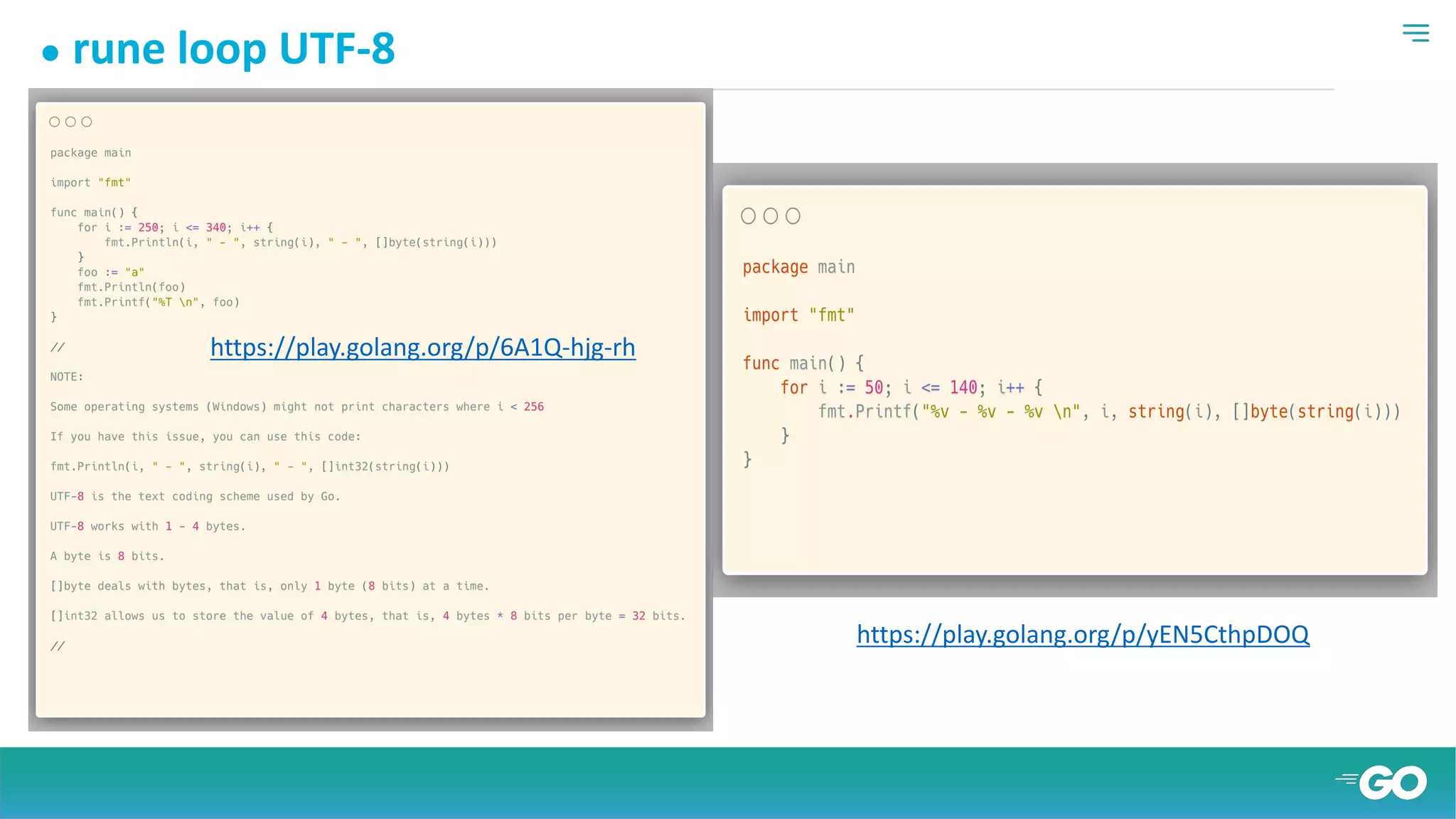
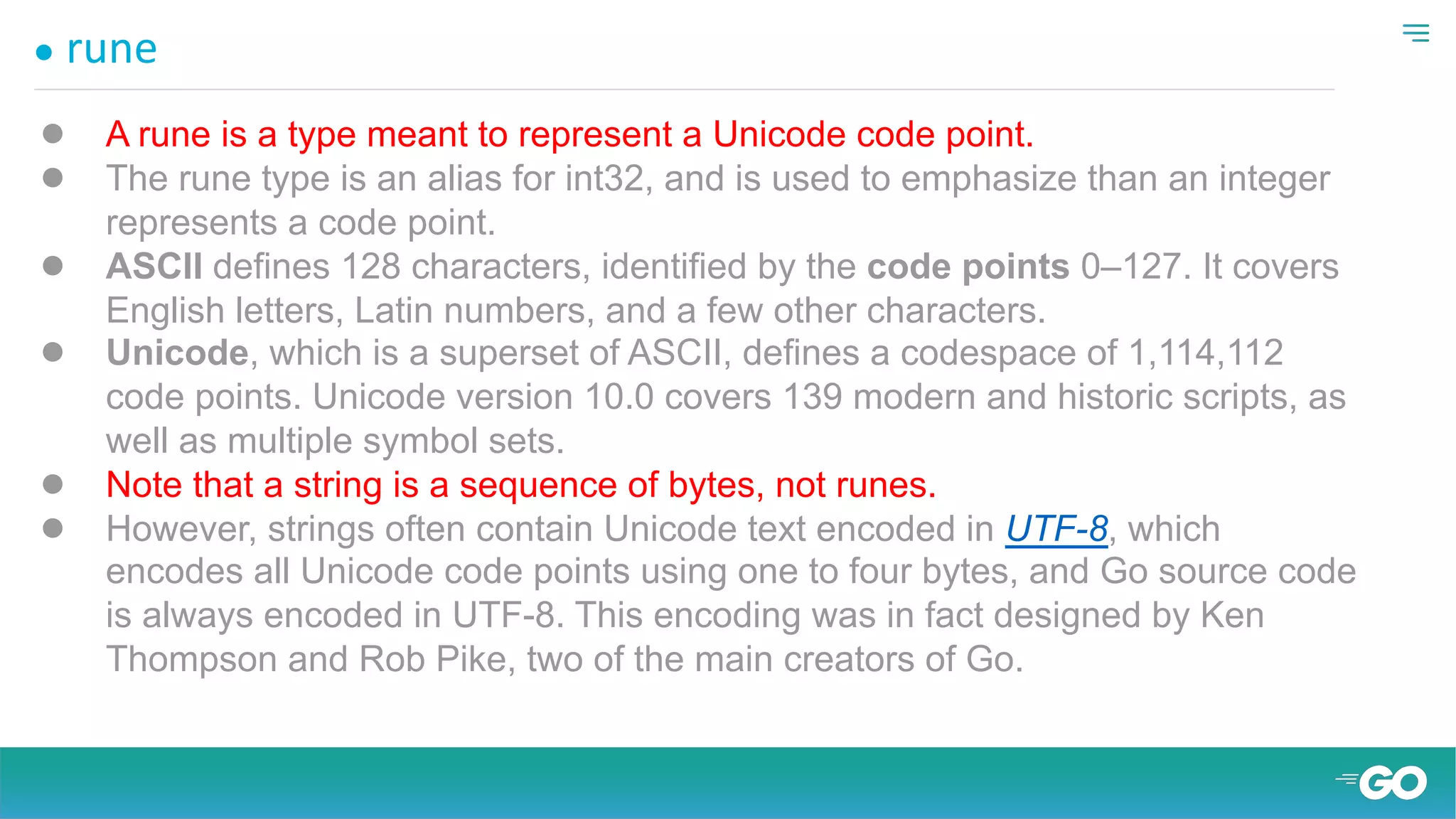
![fmt.Println([]rune("okteto")) Package reflect implements run-time reflection, allowing a program to manipulate objects with arbitrary types. The typical use is to take a value with static type interface{} and extract its dynamic type information by calling TypeOf, which returns a Type. A call to ValueOf returns a Value representing the run-time data. Zero takes a Type and returns a Value representing a zero value for that type. https://play.golang.org/p/u3tdGtiU6UT](https://image.slidesharecdn.com/decisionmaking-200224234807/75/Decision-making-for-loop-nested-loop-if-else-statements-switch-in-gopherlabs-12-2048.jpg)
